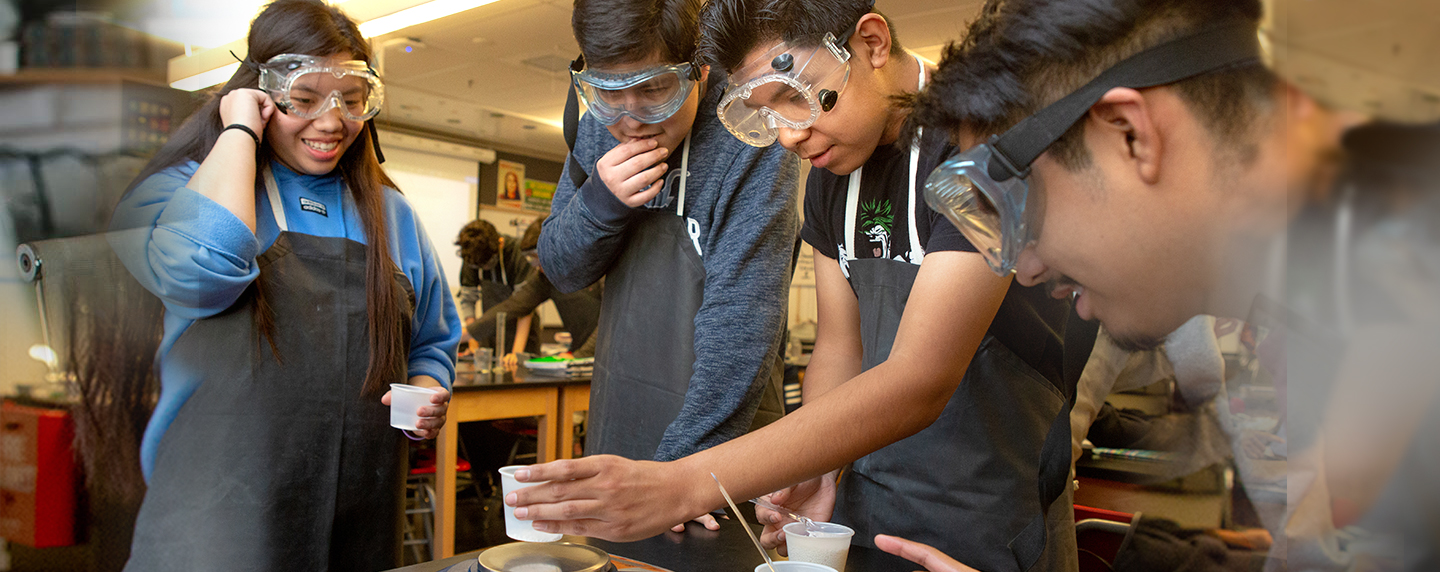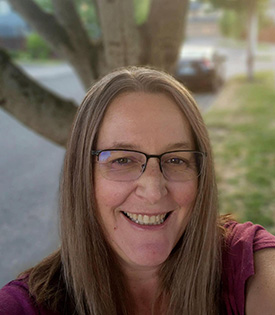
Stories of Impact
Back to In Action / Dr. Kristin Moon, Educator
Dr. Kristin Moon
Teacher Professional Learning Director, Portland Public Schools, Oregon
Dr. Kristin Moon has taught STEAM at the middle-grade level for more than 20 years. She first encountered Invention Education through an after-school program. After having success engaging students from diverse backgrounds, she brought those experiences into the classrooms at her middle school and then throughout the district, and currently supports teachers’ professional learning.

Dr. Kristin Moon
What I heard from kids a lot is they felt heard, recognized, and valued.
How did you first learn about Invention Education?
I first encountered Invention Education through Oregon MESA. They needed an advisor at my middle school where I was teaching. We were doing lots of engineering — who could have the strongest bridge, those kinds of things. We started talking about wanting kids to do something more meaningful with their work, and so we started looking at this idea of design for the other 90 percent. Let’s be engineers and people who are looking at these bigger problems, and kids themselves have the ability to have solutions and ideas that are of value.
How is Invention Education particularly effective for students who are not engaged by traditional STEM teaching?
What I heard from kids a lot is they felt heard, recognized, and valued. I started having a lot of success with kids who didn’t have success in the school day — kids who were having challenges or English was a second language for them. Invention Education values everybody’s ideas as a place to start. It values the idea of mistake-making and that the process is more important than the product. They got to be reflective on what was working for them, what wasn’t working, and understanding the intentionality around what was being designed. And they got to work on problems that mattered to them, that were interesting to them.
What kind of skill sets does Invention Education teach?
Failure is really critical. How do you have failure and then keep going forward and learn from that? The idea of creative thinking — looking at, “How do these pieces go together?,” “Let’s use that tool in a different way that we’ve never thought about before.” — and also those critical thinking skills. Empathy is incredibly important — trying to understand what the experience is of the user and why that’s important. Is the problem I identified actually a problem or am I deciding that’s a problem for the user? And then going back and getting that constant feedback, so that it’s putting value in listening and understanding other people’s points of view and perspectives.
What advice do you have for teachers on how to approach this method of teaching?
I think one way for teachers to embrace it and to change their practice is to view the teaching itself through the lens of the invention and the design cycle. As teachers we’re doing that iteratively all the time. We’re designing instruction for kids, we’re looking and testing to see how that’s working, does that get the outcomes we want, and then are redesigning it. And when we frame it in that way — “You’ve actually been doing this all the time, you just didn’t realize it.” — that’s incredibly empowering for them.
I think Invention Education creates a greater bond between teachers and students because you’re doing something that nobody has the right answers to.
How does Invention Education strengthen the teacher-student connection?
I think one of the things it brings out in teachers is viewing kids from the things they bring and the opportunities they have in those strengths, versus evaluating kids from a deficit model. We can have these shared experiences and build on those things that are strengths. I think that’s an important shift in looking at how we view kids, and it makes teachers more happy with their work. I also think Invention Education creates a greater bond between teachers and students because you’re doing something that nobody has the right answers to. That process of trying to figure that out — it’s not only growth in your knowledge, but also in your relationships and how you think and how you interact with people. I think it’s why teachers who teach invention keep coming back to it.
What has been the value of the InventEd Network?
It’s been really nice to be part of a community. A lot of times I’ve felt very isolated in my own building, and I didn’t know anybody else or I didn’t even have anybody to call. So now I have people to go to and say, “These are the experiences I’m having, this is the feedback I’m getting, what are you doing about it, can you be a thought partner with me?” And the idea we’re not there to just be affirmative, but we’re also there to push and grow, is a piece that I really value with the community.
